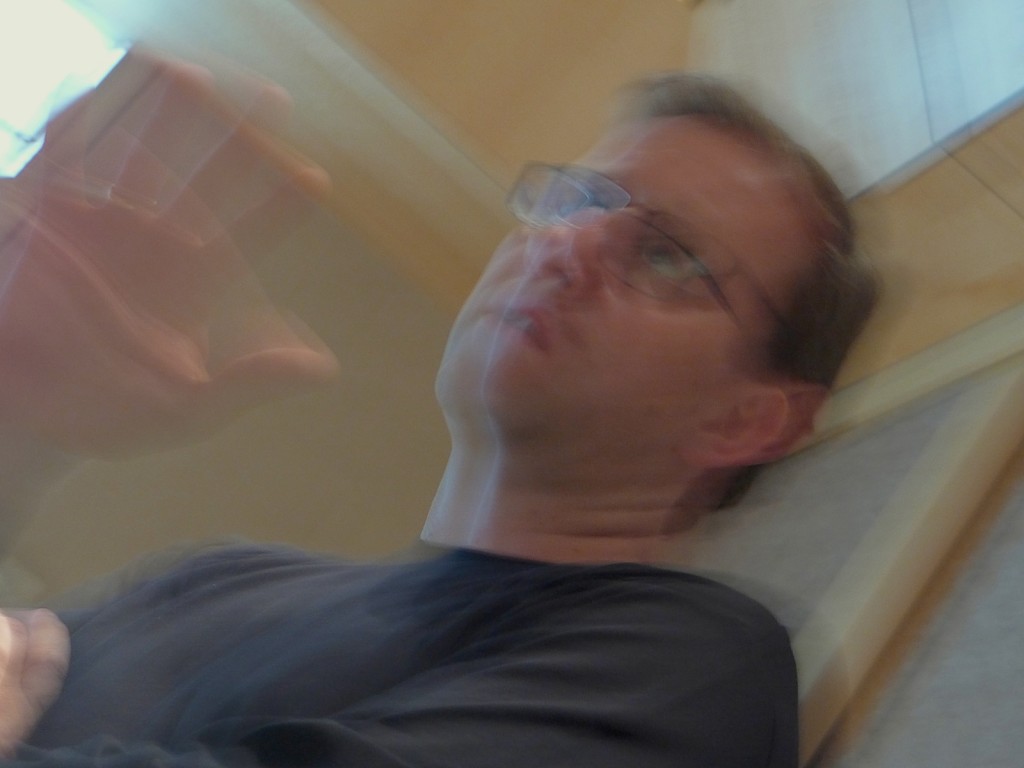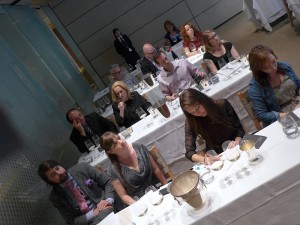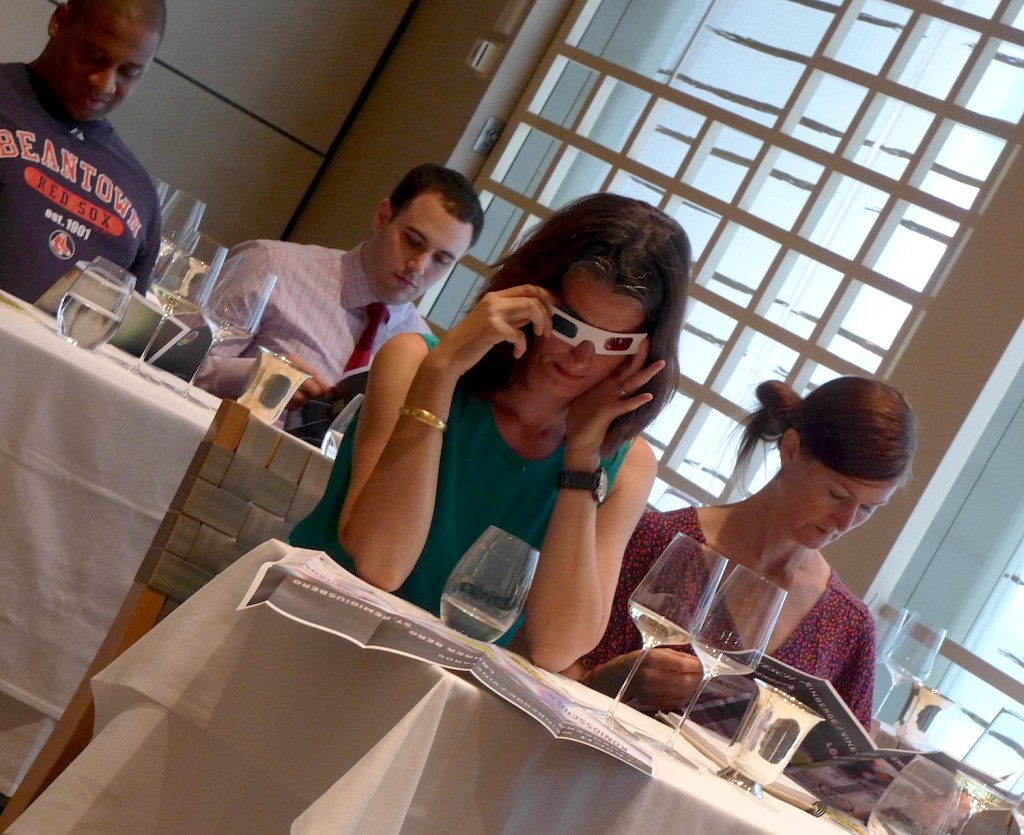The picture shows the scene around 4pm this afternoon in an upstairs room at Le Bernardin Restaurant on West 51st Street in Manhattan as guests at the tasting of dry Rieslings from the Tesch winery in the Nahe region of Germany studied at the 3D map of Dr. Martin Tesch’s vineyard holdings. Shortly afterwards, as they tasted the first of the wines, the bone dry 2012 Riesling ‘Unplugged’ (all of the Tesch wines are seriously dry) their faces would have made an even better picture: some delighted, some incredulous, others slightly shocked. The wine was as bright and sharp as a samurai sword and cut the air in the room polarizing opinion. However, I’d put my camera down to concentrate upon the wines and figure out what I could say next, so I stupidly missed that moment. It wasn’t a surprise for me though, because since at least 12 years when the first dry Riesling ‘Unplugged’ was released Dr. Martin Tesch has been delighting, overwhelming and shocking somms and normal wine drinkers alike. Everybody who tastes them, whether they end up drinking Tesch wines or avoiding them like the plague, mentions their pronounced acidity of his wines and their bone-dry balance. Their “finely-etched” were much less often discussed, not least because some people don’t get that side of them at all. None of this surprises Tesch any longer, because it’s been like that for so many years and this knowledge has shaped his character. If all that suddenly changed, then he’d be the one who was shocked!
 All this only hints at the man’s outsized personality, which is as big and taut as Tesch is tall and lean. It strike’s me that this image captures the energy of the Dr.’s delivery and the expansive, yet precise nature of the thoughts he expounded. Can you in the picture that although he doesn’t reject tradition – let’s face it wine is a product often over-loaded with tradition! – he considers it his right to pick and choose what traditions he’s going to reinvent? Maybe not, but he’s used to freely thinking his way through the maze that is wine growing, winemaking and the marketing of wine. Probably, the impression he made on most of the guests was doubled, because so few of them had met him or hear him speak and it was not what they were expecting. The Le Bernardin tasting was actually the second we did together today and it was striking that several people attended the afternoon event as well as the one at late breakfast time this morning. In No-Show New York that’s something so astonishing that it borders on the bizarre!
All this only hints at the man’s outsized personality, which is as big and taut as Tesch is tall and lean. It strike’s me that this image captures the energy of the Dr.’s delivery and the expansive, yet precise nature of the thoughts he expounded. Can you in the picture that although he doesn’t reject tradition – let’s face it wine is a product often over-loaded with tradition! – he considers it his right to pick and choose what traditions he’s going to reinvent? Maybe not, but he’s used to freely thinking his way through the maze that is wine growing, winemaking and the marketing of wine. Probably, the impression he made on most of the guests was doubled, because so few of them had met him or hear him speak and it was not what they were expecting. The Le Bernardin tasting was actually the second we did together today and it was striking that several people attended the afternoon event as well as the one at late breakfast time this morning. In No-Show New York that’s something so astonishing that it borders on the bizarre!
 As both tastings proceeded it was striking how each time the mood in the room changed, and how much of the initial shock and skepticism melted away. People clearly got used to tasting Rieslings that speak a different dialect to most German wines and a completely different tongue to any of the wines France, Italy, California and the other usual suspects for the New York wine scene. By the time the 2012 and 2011 vintages of Tesch’s dry Rieslings from the St. Remigiusberg – all those citrus aromas and something exotic like the bright colored tiles of a mosaic, the wines’ acidity illuminating them like a shaft of sunlight – were poured most of those present were silently preoccupied with the wines, and the question was no longer whether to Tesch or not to Tesch, but how to Tesch and when to Tesch
As both tastings proceeded it was striking how each time the mood in the room changed, and how much of the initial shock and skepticism melted away. People clearly got used to tasting Rieslings that speak a different dialect to most German wines and a completely different tongue to any of the wines France, Italy, California and the other usual suspects for the New York wine scene. By the time the 2012 and 2011 vintages of Tesch’s dry Rieslings from the St. Remigiusberg – all those citrus aromas and something exotic like the bright colored tiles of a mosaic, the wines’ acidity illuminating them like a shaft of sunlight – were poured most of those present were silently preoccupied with the wines, and the question was no longer whether to Tesch or not to Tesch, but how to Tesch and when to Tesch


![120114_riesling_global_RZ [1600x1200]](http://www.stuartpigott.de/wp-content/uploads/2014/06/120114_riesling_global_RZ-1600x120015.jpg)